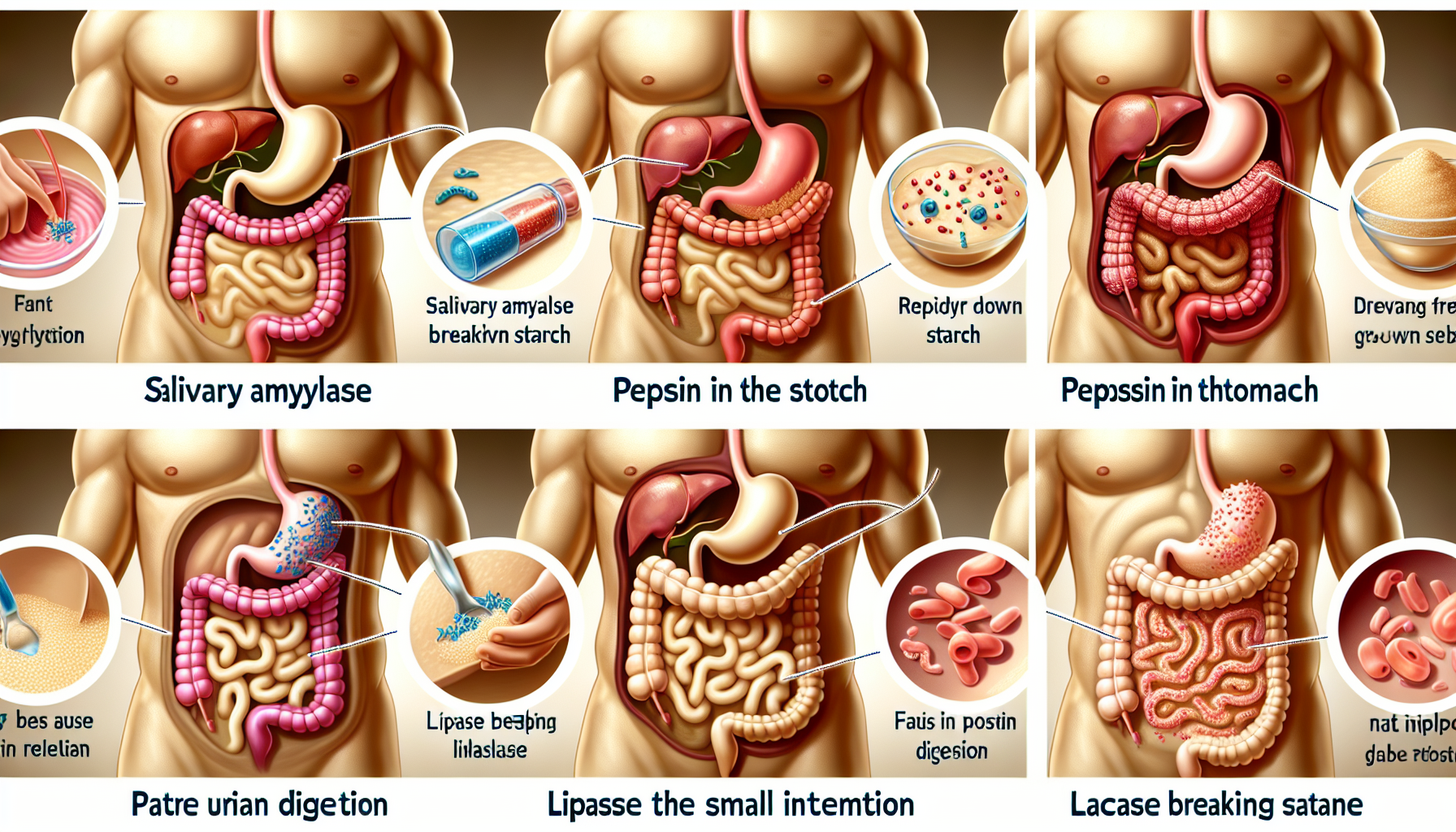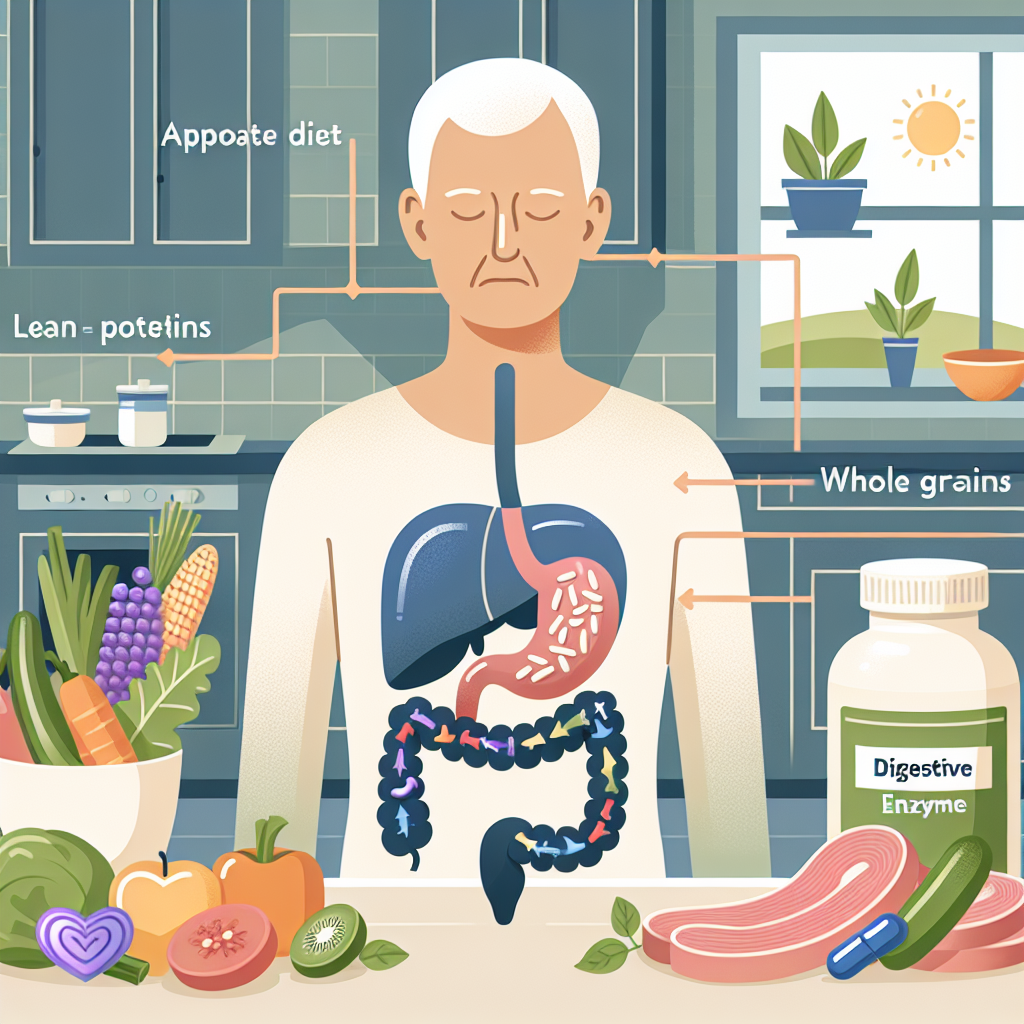As we age, our bodies undergo a plethora of changes, many of which affect our digestive system. Among these changes, the production and functionality of digestive enzymes see a significant shift, influencing our overall health and well-being. In this comprehensive exploration, we’ll delve into the critical role of digestive enzymes in the aging process, the challenges posed by their altered function, and strategies to support digestive health as we grow older.
Digestive enzymes are biologically active proteins that accelerate the breakdown of food into nutrients that our bodies can absorb. They are secreted throughout the digestive tract – starting in the saliva and continuing in the stomach, pancreas, and small intestine. As indispensable facilitators of digestion, enzymes such as amylase, protease, and lipase help digest carbohydrates, proteins, and fats, respectively.
The Age-Related Decline in Digestive Enzymes
Research indicates that the secretion of these essential enzymes diminishes with age, a phenomenon that can lead to various digestive issues. This decline can result in malabsorption of nutrients, bloating, gas, and changes in bowel habits. Moreover, the reduced digestive enzyme activity can impact other areas of health, including immune system function and nutrient status.
Impact on Nutrient Absorption
With age, the pancreas may become less efficient at producing enzymes, affecting the digestion of macronutrients and leading to deficiencies in key vitamins and minerals. The implications of these deficiencies are far-reaching, potentially influencing bone health, energy levels, and muscular function.
Gastrointestinal Symptoms
Symptoms such as bloating, gas, and irregular bowel movements are common in the elderly and can be signs of enzyme insufficiency. Addressing this can improve not only comfort but also the quality of life.
Links to Other Health Concerns
Evidence suggests that enzyme insufficiency may contribute to more serious health issues, including cardiovascular diseases. For instance, poor fat digestion due to low lipase levels can affect cholesterol and triglyceride absorption, impacting cardiovascular health.
Enhancing Digestive Enzyme Function with Age
Despite the natural decline in enzyme production, there are strategies to enhance digestive function in the elderly.
Supplementation
Supplemental enzymes can compensate for the body’s reduced production. These supplements are available over the counter and can be a pivotal part of managing age-related digestive enzyme insufficiency. For more details on enzyme supplements, visiting a resource on medication and supplements can provide valuable information.
Dietary Adjustments
Incorporating enzyme-rich foods, such as pineapples and papayas, which contain natural bromelain and papain, can support digestion. Fermented foods like yogurt and kefir are also beneficial, as they contain live cultures that aid in the breakdown of food.
Hydration
Maintaining proper hydration is essential for optimal enzyme function and overall digestive health. Adequate fluid intake helps enzymes work efficiently and supports the transport of nutrients in the body.
Supporting Research and Additional Resources
To further understand the significance of digestive enzymes in aging, here are some niche resources that delve into the specifics:
- An in-depth study on enzyme supplementation benefits for the elderly.
- Research on the impact of diet on enzyme production as we age.
- A detailed review on the relationship between hydration and digestive health.
Other Relevant Avix Health Articles
To expand your understanding of digestive health, consider these related articles:
- "Understanding the Role of the Microbiome in Nutrient Absorption" discusses the integral role that gut bacteria play in conjunction with digestive enzymes.
- "Strategies for Improving Liver Detoxification for Digestive Health" highlights the liver’s role in processing nutrients and how enzymes are involved in detoxification pathways.
- "The Connection Between Gut Microbiome and Food Cravings" explores how the products of digestion, influenced by enzymes, can affect our dietary choices and cravings.
Conclusion
As the aging process naturally alters enzyme production, understanding and addressing these changes is crucial. By recognizing the symptoms of enzyme deficiency and taking proactive steps, such as dietary modifications and supplementation, older adults can significantly improve their digestive health and overall quality of life.
Maintaining a focus on digestive wellness is not only about comfort; it’s about ensuring that the body continues to receive the nutrients necessary to support all aspects of health as we age. With the right strategies in place, it’s possible to lessen the impact of aging on digestive enzyme function and sustain a vibrant, nutrient-rich lifestyle.



